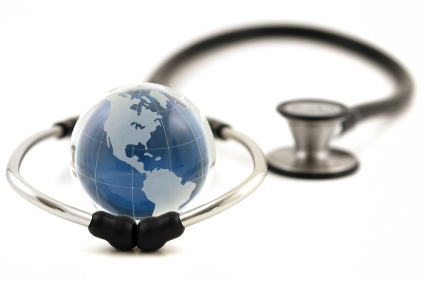 Globalization promotes the movement of information, goods and people across the world. While interconnectivity can be positive, the process of forging a connected world can produce global health risks. The cross-border movement of goods and people may encourage the spread of infectious diseases. For example, the swift proliferation of Severe Acute Respiratory Syndrome (SARS) strongly owed to extensive human migration. The first documented case of SARS occurred in February 2003. Approximately 7,000 cases were reported across thirty countries merely four months later. It is a dilemma that cannot solely be addressed by the health sector. To generate a resolution, national and international political systems must consider the political determinants of international public health.
Globalization promotes the movement of information, goods and people across the world. While interconnectivity can be positive, the process of forging a connected world can produce global health risks. The cross-border movement of goods and people may encourage the spread of infectious diseases. For example, the swift proliferation of Severe Acute Respiratory Syndrome (SARS) strongly owed to extensive human migration. The first documented case of SARS occurred in February 2003. Approximately 7,000 cases were reported across thirty countries merely four months later. It is a dilemma that cannot solely be addressed by the health sector. To generate a resolution, national and international political systems must consider the political determinants of international public health.
The concept of ‘global governance’ has garnered recent attention in the global health field. The idea refers to administering the myriad policy sectors which directly and indirectly affect human health. These include finance, security, agriculture, trade, migration and the environment. Academic and independent health institutions, such as World Health Organization, World Health Summit and the Harvard Global Health Institute, have acknowledged the layered and nuanced processes of globalization that fall beyond the control of nations and conventional health systems.
On February 11, 2014, the Commission on Global Governance for Health published its first report since its founding in December 2011. The Commission is a product of collaboration between UK medical journal The Lancet, University of Oslo and the Harvard Global Health Institute, comprising eighteen public health experts tasked with examining contemporary health implications of globalization.
Health concerns that arise from transnational interaction often affect vulnerable populations
The report contends that international economic and political systems, while serving a global community, must be cognizant of their role in creating public health measures. The group implored state and non-state actors to engage in collaborative dialogue over decision-making processes vis-à-vis public health. International health organizations, technical measures and national governments alone cannot address these concerns.
Instead, the Commission suggests establishing international monitoring efforts to trace the “global political forces that are detrimental to health.” It suggests creating an independent scientific monitoring panel, founded on a global network of public health experts, in order to trace and classify health risks stemming from transnational movements. Results would then be made accessible to national and international bodies for further action. While the WHO already plays a critical role in existing matters of global health governance, the recommendations request greater national management and policy implementation.
The report also found that the existing lack of cooperative governance in health has produced global inequities. It states that “[p]ower asymmetry and global social norms limit the range of choice and constrain action on health inequity; these limitations are reinforced by systemic global governance dysfunctions and require vigilance across all policy arenas.” Health concerns that arise from transnational interaction often affect vulnerable populations at a greater cost since developing nations do not have advanced protective health resources. Global health governance intends to disrupt this trend.
In an increasingly globalized and decentralized world, public health should not merely concern itself with disease eradication and technical intervention; rather, it must consider preventative measures based on international collaboration geared towards non-health jurisdictions. Understanding how globalization poses concerns to the health of the global community may bring us closer to the policy recommendations offered by the Commission on Global Governance for Health.




